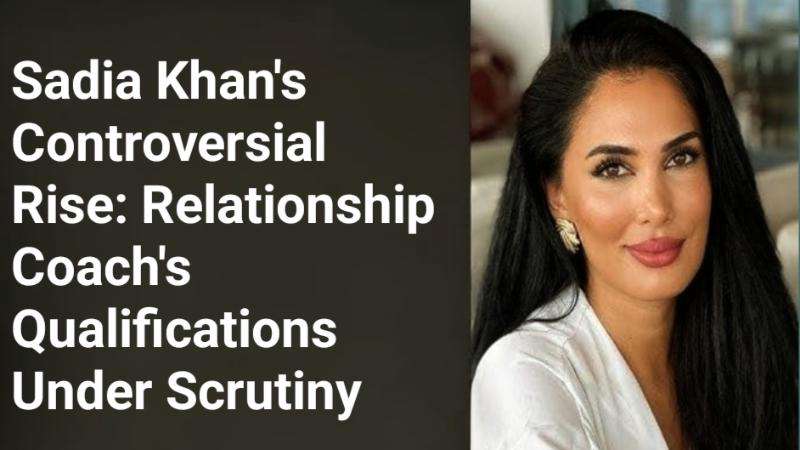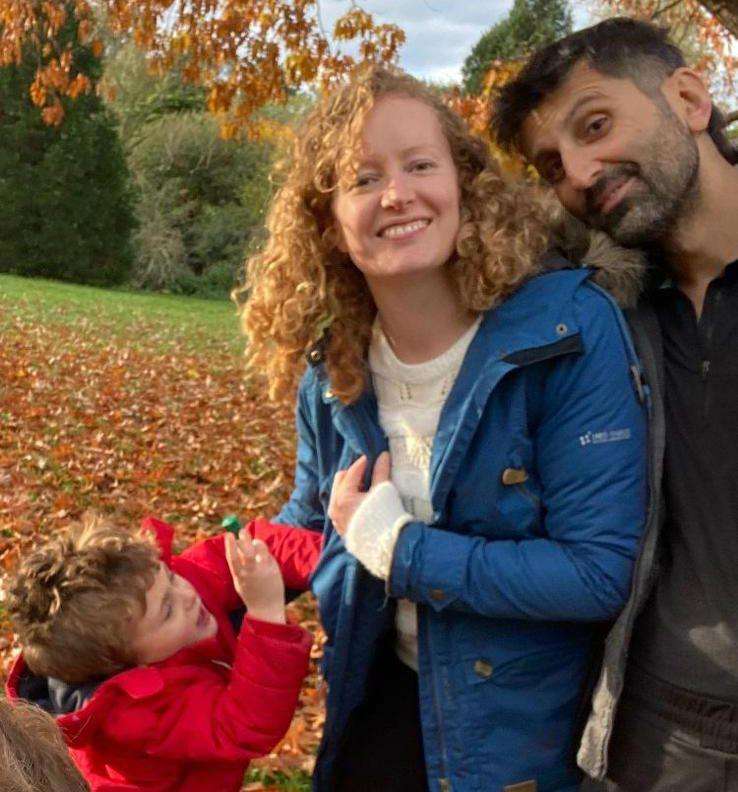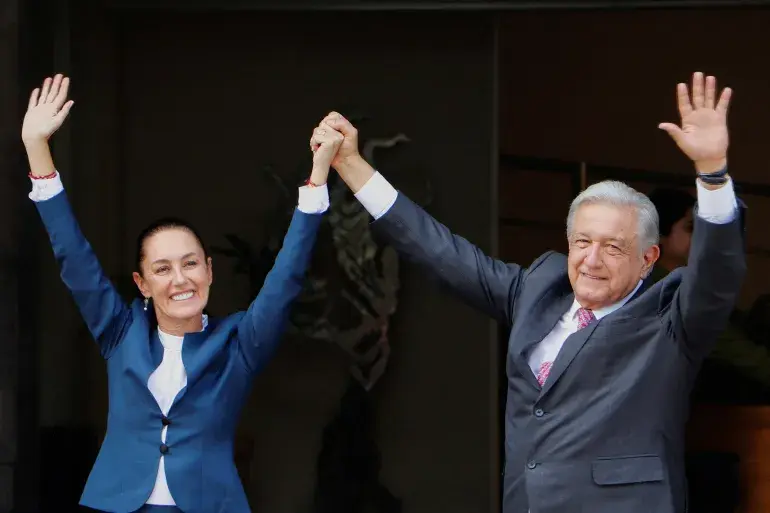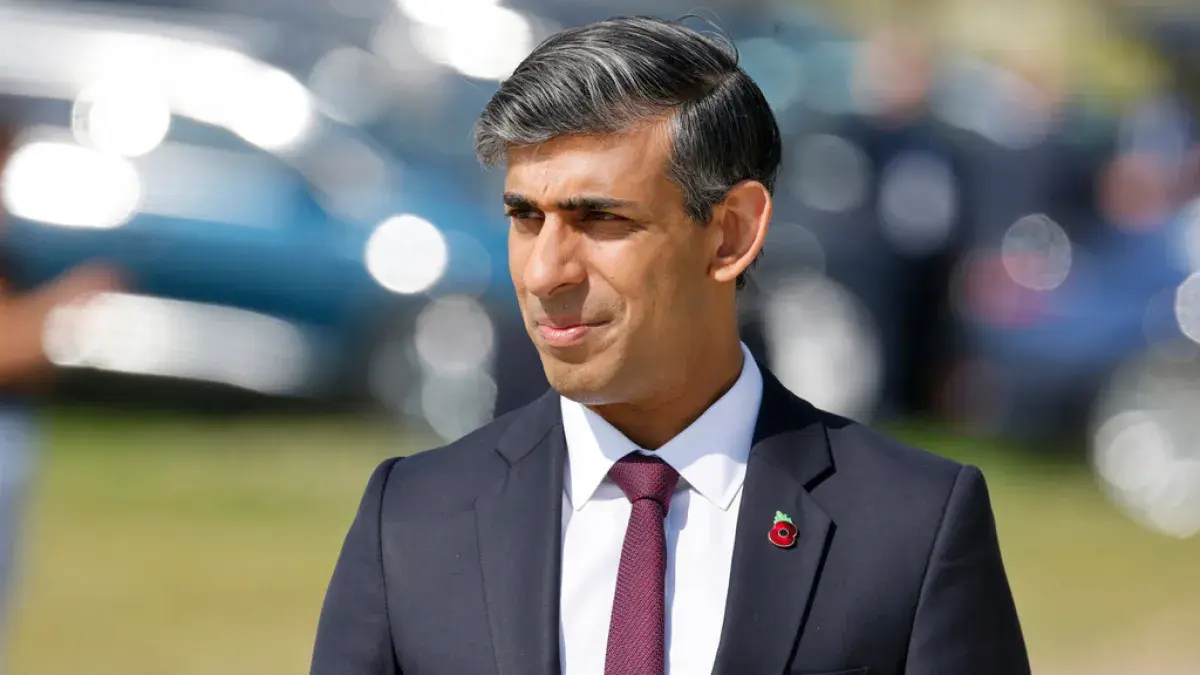A coworker messaged me in December after we had returned from a family outing to see Santa at our neighborhood farm park, informing me that Home Secretary James Cleverly would be speaking in the House of Commons about efforts to lower net migration.
It goes without saying that that day's Christmas present was not what I had anticipated.
I had been anticipating an update from the government as an employee of Praxis, a human rights NGO that assists migrants who are homeless or in extreme poverty, ever since record levels of net migration made headlines in November.
But this didn’t mute the shock I felt when I tuned in to hear Cleverly reveal that the amount a household needs to make if one partner is a foreigner was going up. Not by a couple of grand, nor in line with inflation, but by more than £20,000 (from £18,600 to £38,700 by 2025).
So when I read about yet another Tory visa fee hike, it felt like Groundhog Day.
In another desperate attempt to divert attention from failing public services, falling wages and the cost of living crisis, Prime Minister Rishi Sunak is promising to raise visa fees again if the Conservatives are re-elected in July – this time to pay for 8,000 more police officers.
The UK already has some of the highest visa fees in the world – largely because the Home Office currently charges as much as four times what it costs them to process. Last year, fees went up by anywhere between 7% and 66%.
Another above-inflation increase would be a disaster for the people we support at Praxis. People are already forced to choose between saving for their fees and feeding their children.
All the new UK immigration changes
Migrant care workers no longer allowed to bring relatives
Minimum income for skilled worker visa hiked from £26,200 to £38,700
Salary level for family visa raised from £18,600 to £38,700
Reform of ‘shortage occupation’ rules
Reform ‘graduate route’ immigration rules
When my Turkish husband, Medet, and I first met in Istanbul in 2010, it never crossed my mind that we might not have a choice about where to live.
Like many people with the luxury of never previously dealing with the UK’s immigration system, it simply didn’t occur to me then that – as a British citizen – I might not have the right to make a life together with my husband in the country where I was born and raised.
We settled in Istanbul after we got married in 2014 and had two children, but a few years later – for a whole range of reasons – we began to think about moving to the UK.
The application for my husband’s first spouse visa in 2021 was eye-wateringly expensive, but we were lucky. We had the money to shell out the requisite £3,000 – made up of a £1,538 application fee and £1,560 to access the NHS for 2.5 years – and I had a job offer with a salary that met the minimum income threshold of £18,600 per year.
Over the last two and a half years, we’ve slowly navigated all the adjustments that come with a big move. Our kids are enjoying school and nursery, and we were finally feeling settled in our new home in Leicester.
But both last year’s and this week’s announcement has been a painful reminder that, because Medet and I dared to fall in love across borders, we can’t be sure of our future together here.
Unfortunately, when you marry someone not born in the UK and try to build a life with them here, you get used to the constant, low-level anxiety of not knowing what the Government will do next that might make your lives more difficult.
In my line of work, I know only too well how this Government uses immigration policy to casually devastate lives in the name of capturing headlines.
It hiked the NHS surcharge (a fee almost all newcomers have to pay for access to the NHS) by 66% so that it now costs more than £1,000 per year, and shot up fees that the Home Office charges for visas, after already increasing others by up to 35% in October. It’s clear to me that the Government has no shortage of ways to inflict pain on migrants and seemingly few qualms about doing so.
All things being equal, Medet and I are in the incredibly lucky position that we won’t be affected by the December change in the income required to sponsor a spouse visa – or this latest announcement.
My husband just paid £4,000 last week to renew his leave to remain, so this increase wouldn’t impact me personally until the next round of visa renewal application will be due in two and a half years.
Having said that, these announcements reminded me that our future together in this country isn’t in our control. My mind can’t stop racing through the possibilities: what if one of us gets sick and can’t work? What if I lose my job? And most worrying of all: what will we do if one day we can’t meet the requirement?
Although I think we’ll be spared the horror of being forced to leave the country of which my children and I are citizens or – worse – being separated as a family, I can’t help but be afraid of what might come next.
And, more than anything, I can’t stop thinking about all the families who don’t earn enough, and now face an impossible choice about what to do next.
At Praxis, we’re deeply worried about what these and other recent changes to immigration regulations are going to mean for thousands of people across the UK.
We expect to see more families pushed into more difficult situations, where they have to pay more in visa fees and wait longer before they can apply for permanent residency in this country. We’re deeply sceptical about the Government’s claim that this will help to reduce net migration.
One thing is clear: we will see families torn apart by these changes, with horrendous consequences, especially for children.
We’ve known for a long time that this Government is not interested in the impact of its policies on migrants living in the UK.
It now seems that, in its quest to be ‘tough’ on migration, they’re also happy to trample all over the rights of British citizens too.




_2.jpg)



.svg)



